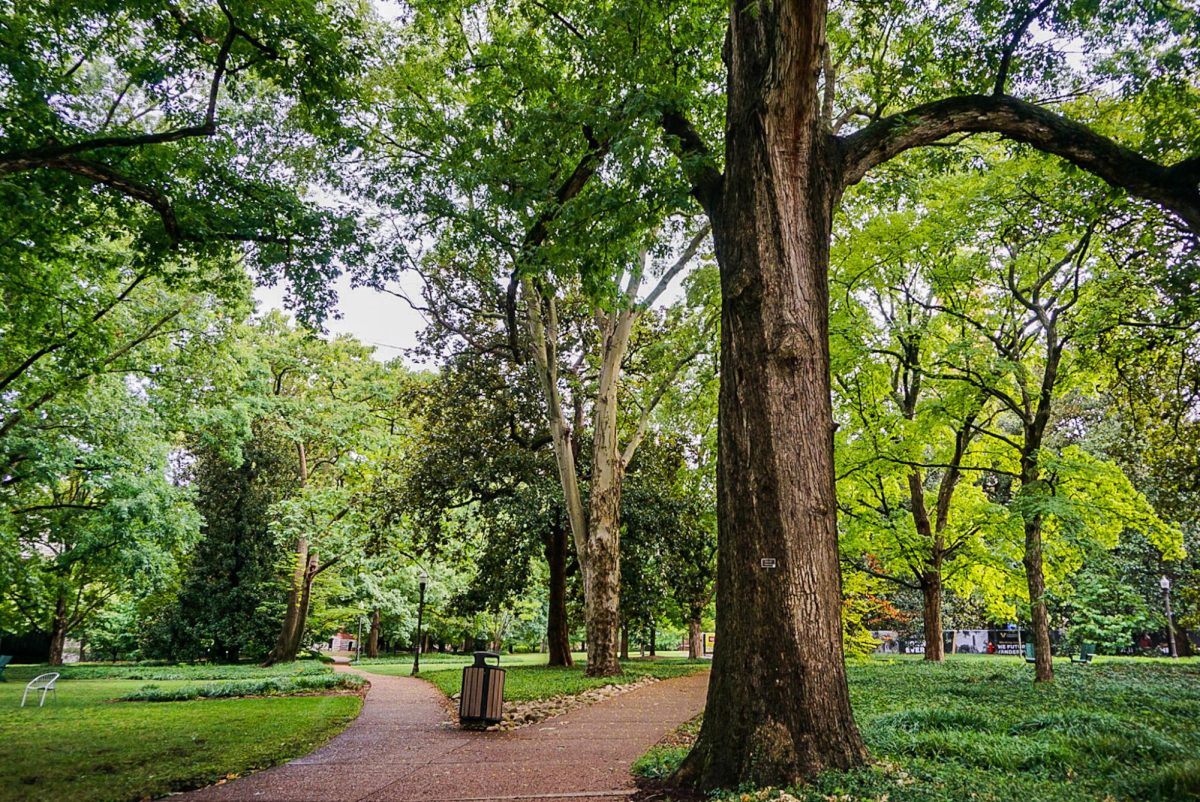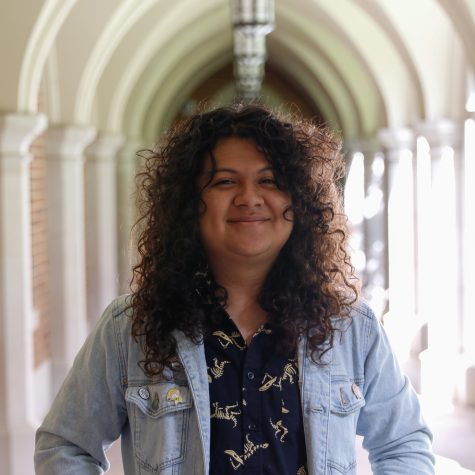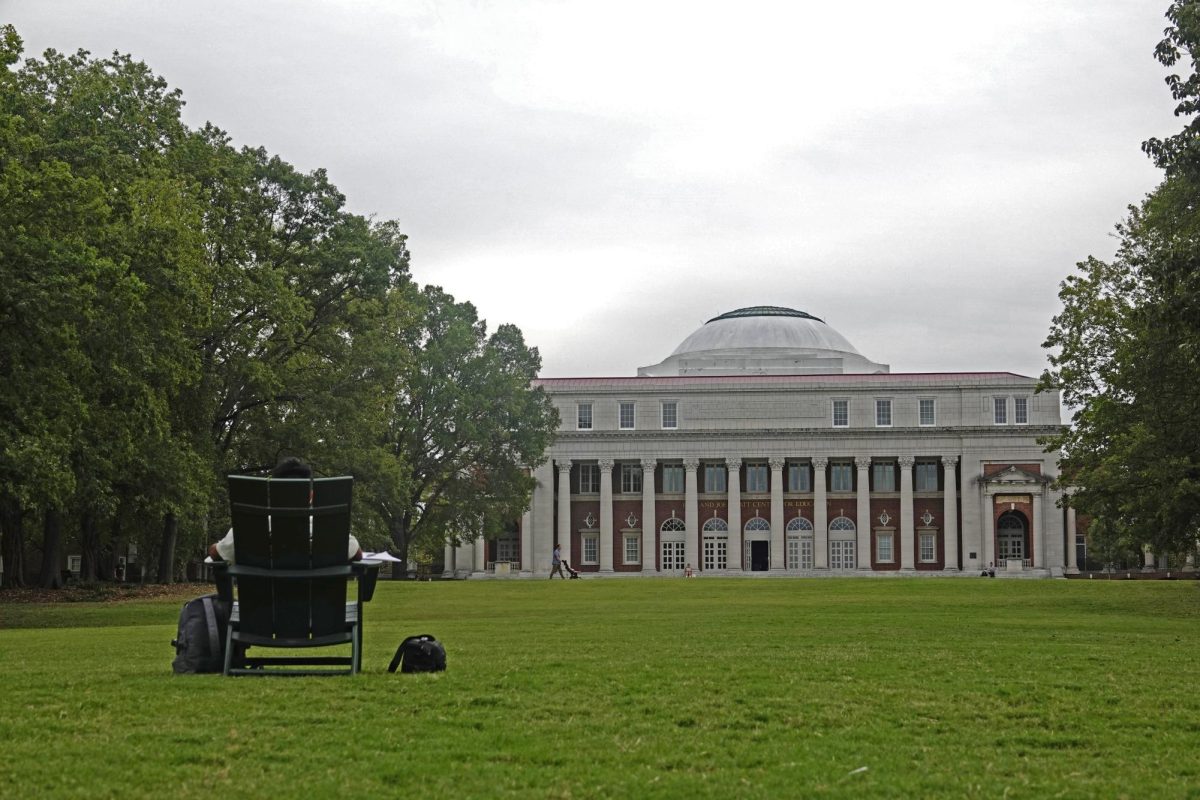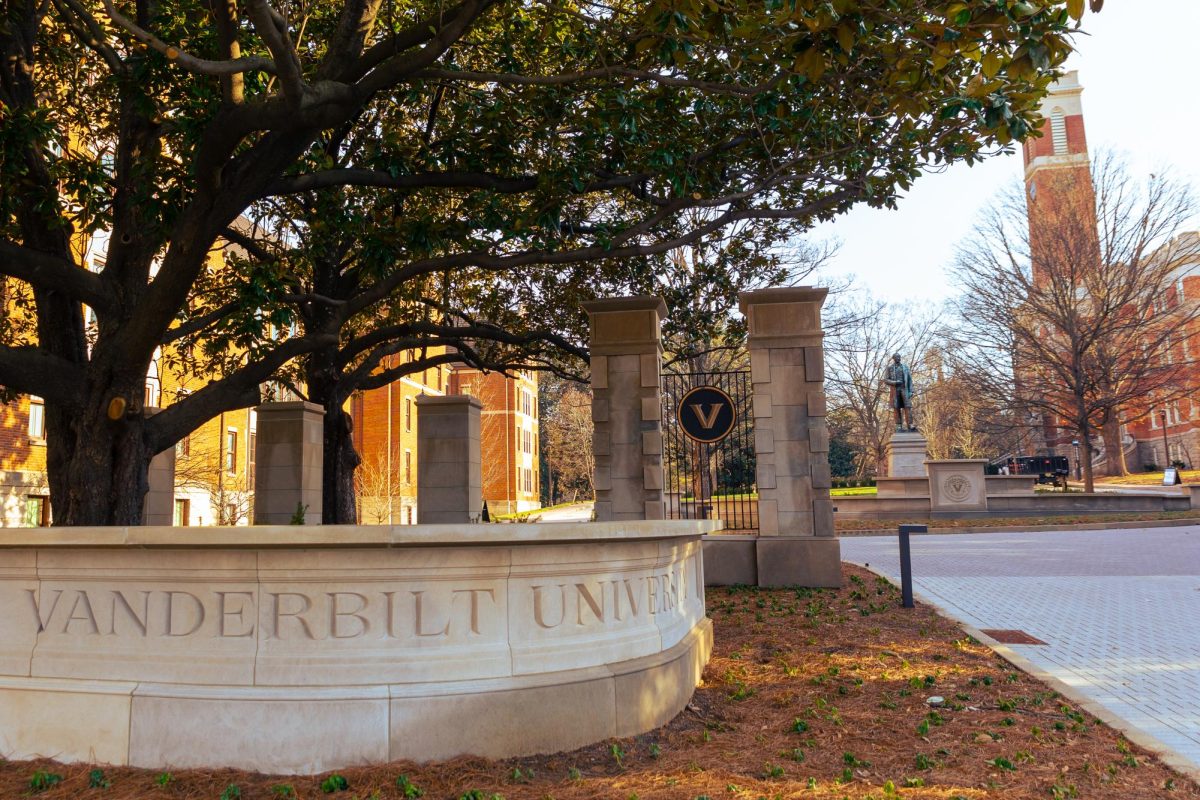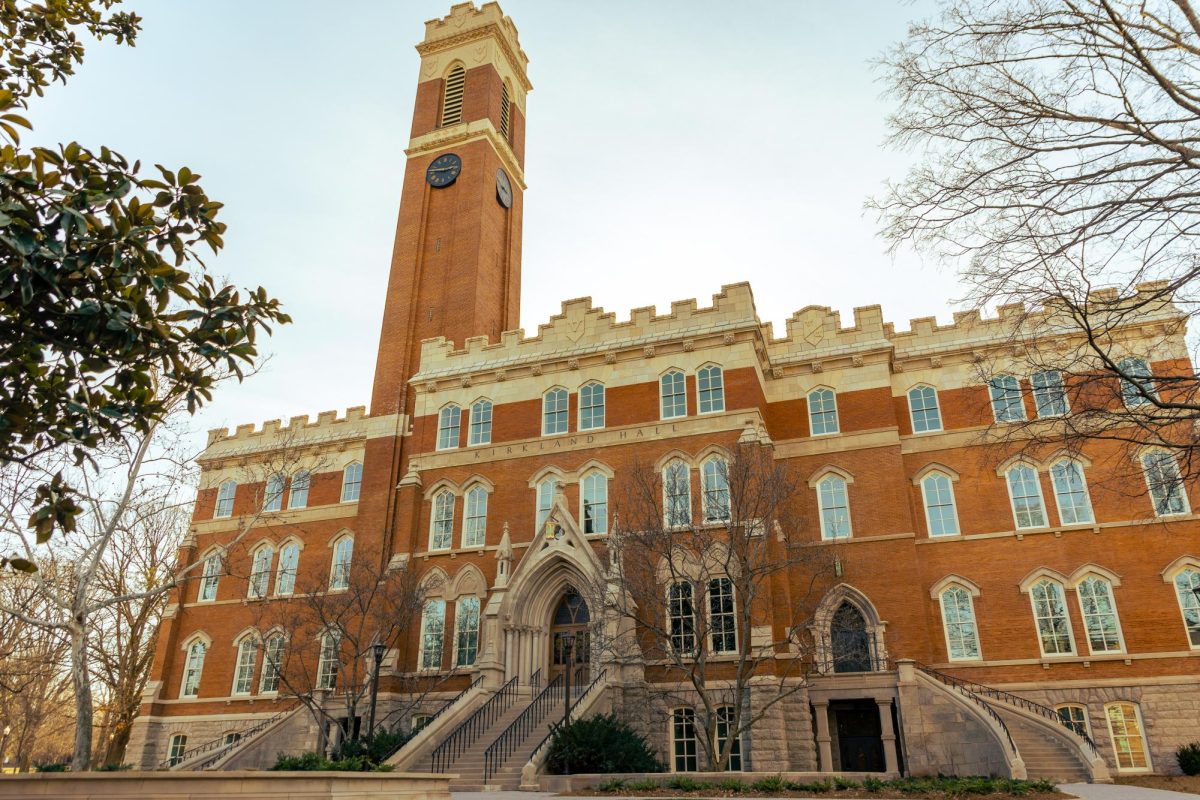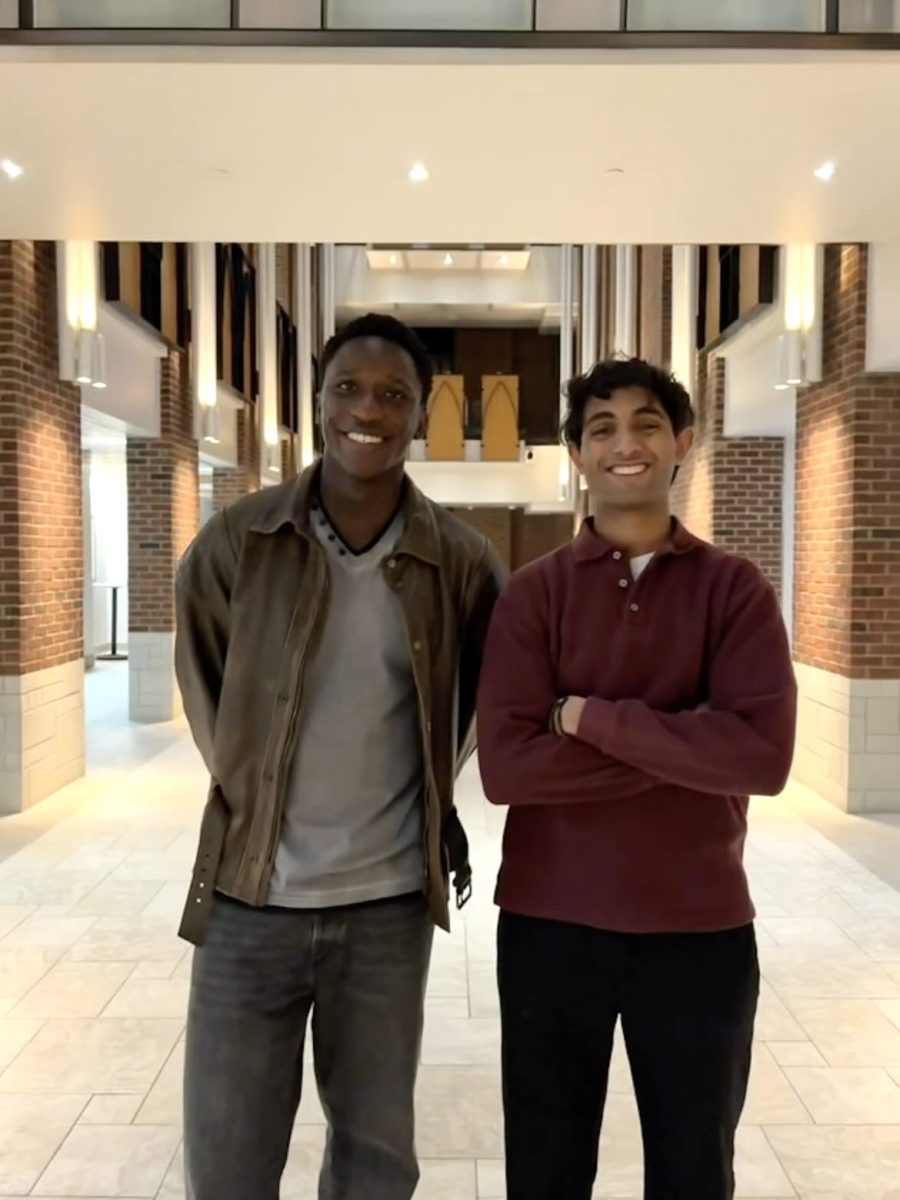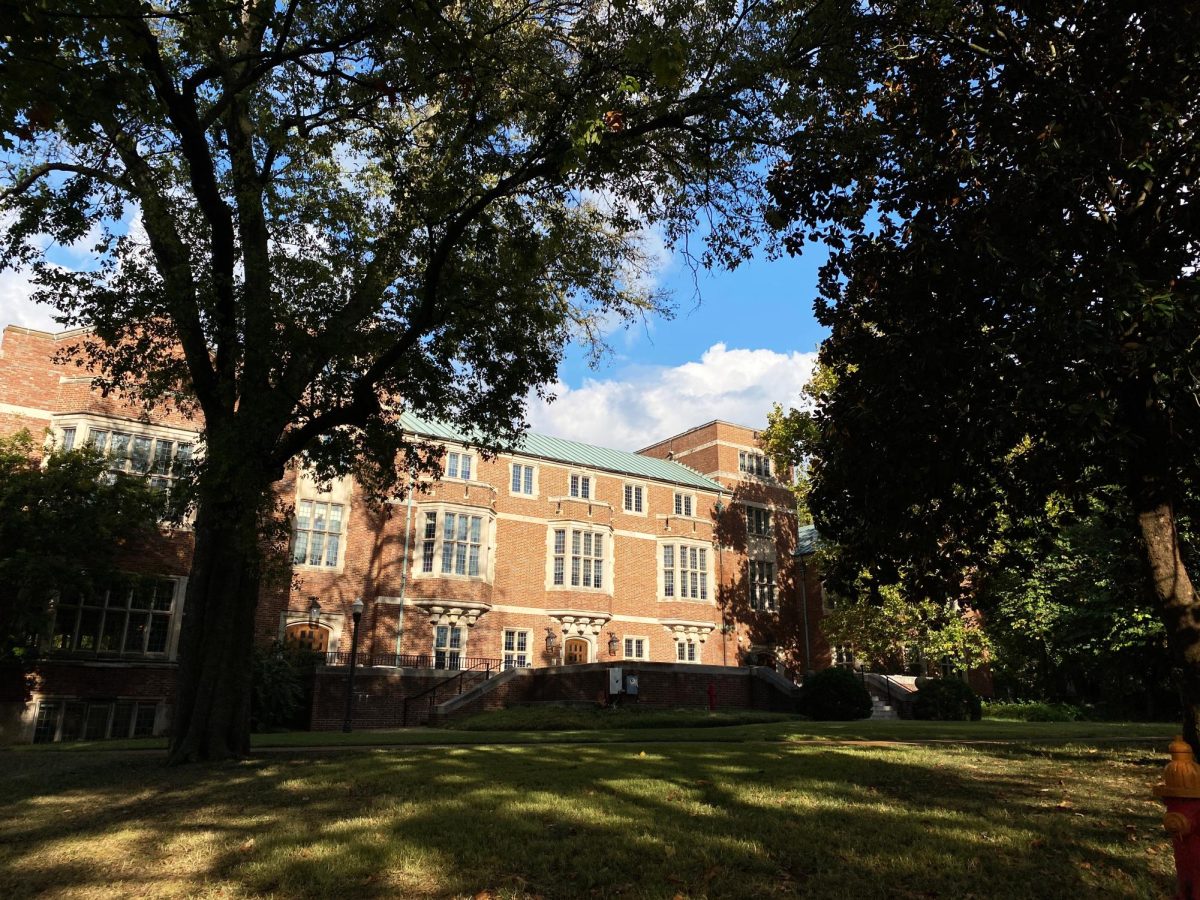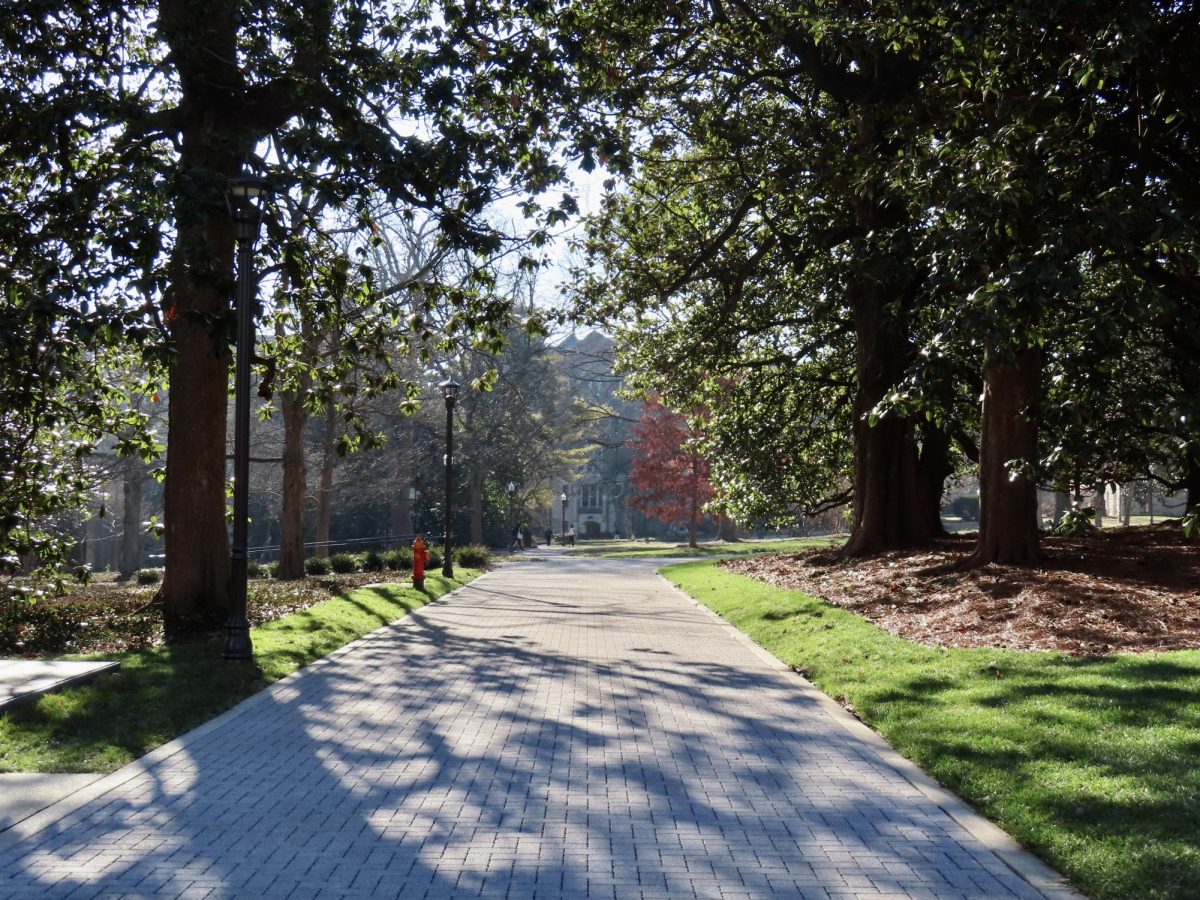VSG President Sam Sliman and VSG Vice President Kendelle Grubbs, both seniors, announced proposed changes to the organization’s structure and publicized VSG’s expenditures since 2020 in an email sent to the undergraduate student body on Aug. 28.
During their campaign, Sliman and Grubbs ran on a satirical platform that included dissolving VSG. The pair also promised to publicize the VSG budget if they were elected. In an Aug. 28 interview with The Hustler, Sliman stated that this process would ultimately fulfill his goal of “abolishing” VSG.
“Student government is not a government. It doesn’t pass binding legislation, which is a key thing that a government does,” Sliman said. “A lot of it [the changes] revolve around the idea of …putting something in place that’s better equipped to advocate for the students and pursue initiatives that they want to see in a more effective way.”
In the email, Sliman and Grubbs also introduced a draft of a new VSG website that focuses on student input. This initiative fulfills a ballot referendum that passed by an over 95% vote in the Spring 2023 election. Sliman stated that there is no timeline for when the website will be functional but affirmed that it should be completed before the end of the Fall 2023 semester.
VSG expenditures
According to the most recently implemented VSG Statutes from February 2023, the organization’s proposed and final budgets are required to be published to AnchorLink within 24 hours of being approved. However, no budgets from previous years are available on AnchorLink as of publication. The Hustler previously obtained VSG’s 2022-23 and 2021-22 budgets, which total over $200,000 each.
Sliman and Grubbs committed to posting the draft and final 2023-24 budget, as well as final expenditures, at the end of the Spring 2024 in an interview with The Hustler. The pair and other students expressed concern about the volume of internal spending made by prior administrations.
“It feels really insulting that VSG had this large budget when it felt like they weren’t doing much for us on campus,” junior Hamdi Caseer said. “It’s even worse seeing all the charges for ice cream and excessive Panera Bread for VSG members along with the multitude of unknown charges.”
Caseer said they supported the move to make expenditures public. In the 2022-23 school year, the organization logged $2246.50 and $375.82 in Panera Bread and ice cream charges for internal members, respectively, as well as $3,124.86 in unmarked expenditures.
New Constitution and Statutes
Sliman and Grubbs sent students a preliminary version of a new Constitution and Statutes, as well as a feedback form for students to comment on the proposed changes. Sliman also stated that VSG plans to rename the organization and many of its executive positions, claiming that the student body currently associates VSG with a negative image. These documents are in a draft stage, with placeholders for yet-to-be-decided new titles.
The Senate must vote on updates to VSG’s Constitution and Statutes before being finalized. In the meantime, Sliman and Grubbs are currently overseeing an interim government with the VSG structure of prior years.
Under the proposed Constitution, current duties of the VSG Senate, Committees and Cabinet would fall under one body of 29 members. Committee and Cabinet positions previously made up two separate branches of VSG. Three executive leaders — the president, vice president and treasurer — would be elected through ranked choice voting in the spring and make up three spots in the body.
Other body members will be elected by the student body via plurality vote at the beginning of fall semesters, a process similar to current VSG Senate elections. According to the draft Constitution, a fourth executive member, whose title is not yet stated, will be chosen from this body.
In the body, there will be five academic positions — two from the College of Arts and Science and one from each of the three other colleges — one transfer student position, five year-based positions — with two from the first-year class and one from each of the three other classes, four general student body positions and 10 representatives from MLC organizations. There is one additional body member not listed in the documents, whose position Sliman said is yet to be determined.
Students voted by an overwhelming majority to implement 10 MLC Senators in the VSG Senate in a ballot initiative during the Spring 2023 election. Previously, the Senate included two non-voting members representing MLC and the Vanderbilt Interfaith Council. It also included 22 residential positions, which would be eliminated under the new proposal.
As new structures are being decided, VSG has appointed Committee chairs and Cabinet members for the 2023-24 year for what Sliman and Grubbs call an “interim government.” The Senate will also be operational in its prior form during this time. Sliman stated that appointed members whose positions remain after the changes are finalized would likely retain their appointed positions, and the fall election would fill the rest of the seats in the body.
Junior Hananeel Morinville, current chair of the Economic Inclusivity Committee, said she does not support the proposed changes to VSG’s structure. She pointed to VSG initiatives in past years such as free printing, free laundry, the free thrift store and the expansion of the GAP Fund as ways the organization has been able to advocate for the student body in the past under the current structure.
“It’s easy to come and make all these rapid changes to VSG’s structure and Constitution when you’re just coming in, especially when you’re coming into a position of power,” Morinville said. “But our Constitution and structure is the way it is for a reason; it’s efficient in getting things done.”
Members could chair standing and ad hoc committees under the new Constitution, while any students can apply to join as committee members. VSG previously had 11 standing committees. Grubbs stated that the VSG administration has not finalized which committees would remain.
Of the current VSG Cabinet, the positions of secretary, director of communications, director of technology and director of programming will be chosen from members of the body, while all other Cabinet positions would be eliminated.
Junior Zack Maaieh, who served as an E. Bronson Ingram Senator in the 2022-23 school year, expressed support for the merging of the Committee and Senate branches, although he stated he did not plan to run for reelection. He claimed that most initiatives were only done in the Committee branch, which he thought created a barrier for senators to participate.
“[The Senate] was not an institution that was capable of driving any powerful change,” Maaieh said. “I think the workload would certainly increase compared to just being a Senator or Committee Chair [with the proposed changes], but not by much because there wouldn’t be as much pressure on the body members to just write resolutions. Instead, they would only do that on issues they’ve been working on and already have a strategy for.”
Maaieh noted that the move toward more elected positions may pose an issue for the organization, pointing to a history of vacancies in the Senate. In the 2022-23 and 2021-22 election cycles, about 40% of Senate seats remained unfilled due to a lack of candidates running but were able to fill positions after introducing an application process.
The appointed elections commissioner position would remain, but the Judicial Branch would be dissolved. According to Sliman, the reasoning behind this change is that the Judicial Branch has not heard a non-election-related issue since 2017. Elections-related issues would now go through just the elections commissioner.

